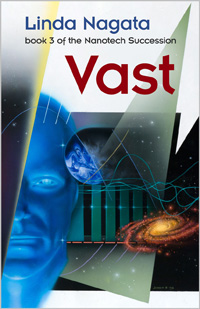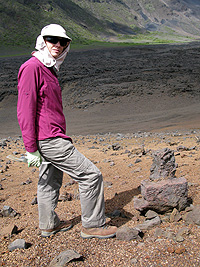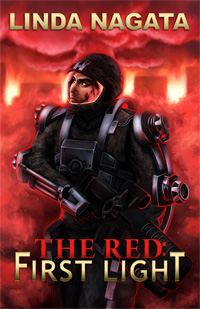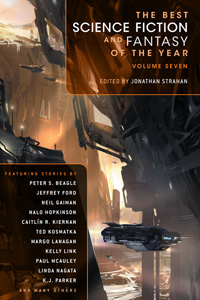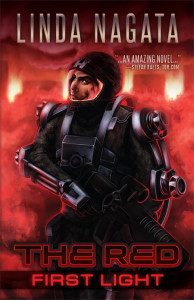 The meme
The meme
There’s a meme circulating among women writers like me who grew up in traditional publishing, and it goes something like this: If a man promotes his own fiction, that’s seen as good business sense. If a woman promotes her own fiction, she’s seen as pushy and self-important, and is likely to be criticized, ostracized, and ignored.
Is this true?
My experience
I promote my own work. When I decided to go indie, I knowingly and willingly took on the task of being my own publicist. With my latest novel, The Red: First Light, this meant that I:
• wrote my own happy announcement of the upcoming book, which I sent to several other writers, asking if they’d like to see an early copy and perhaps provide a quote
• approached John Joseph Adams at Lightspeed Magazine about getting an excerpt included in a spring issue
• put myself forward for a spot on the SkiffyFanty podcast
• did a gradual “build up†via twitter, using descriptive announcements and the cover art to garner interest and build up my mailing list
• co-launched the novel at Book View Café for additional exposure
• sent out newsletter announcements
• in the book’s acknowledgements, asked readers to help out with a review or a tweet if they should feel so inclined
• after publication, did ongoing “getting the word out†tweets, as well as G+ and facebook posts
• on a writers list, asked for guest blogging opportunities and happily accepted the two I was offered
• took out paid advertising promoting myself and the book
• wrote nonfiction posts like this one that will hopefully be of interest to others while getting the word out.
Not everything I’ve tried has produced results. I’ve gotten no reponse at all several times, but so what? People are busy and not everyone shares the same tastes. Overall though, I’ve been amazed and very, very grateful for all the help I’ve received and the opportunities I’ve been given in this strange new world of promoting my own book.
But have I been criticized, ostracized, and ignored?
Criticized? No, not to my face anyway.
Ostracized? Well, doubt does creep in, and it’s easy to wonder if some people have had about enough of me…but if so, it’s subtle. I keep in mind a revised version of an old adage: Don’t attribute to malice what can be explained by diverse interests and extreme busy-ness. We all have our own concerns, our own interests, our own obligations, our own careers. No one is obligated to be my promo-buddy and I hope no one feels they are obligated.
Ignored? Writers get ignored all the time! Well, the golden ones might not be ignored now that they are golden, but it’s a safe bet that they were ignored plenty at some point. Yes, I’ve sent queries that were never answered; review copies that never got reviews; and have failed to hear so much as an “Enjoyed the book!†from friends who seemed interested. That’s life. We’re all busy — and no one is obligated to be my promo-buddy, or to shore up my withering ego. (Though hey, it’s awfully nice.)
Have I got it worse because I’m a “pushy woman”? I have no evidence whatsoever to support that claim. I wouldn’t have even considered it except that I keep hearing the meme repeated.
But what if I am being ostracized and ignored by some elements of the writerly world or social media? Honestly…so fucking what?
The alternative: nothing?
Because the alternative is to do nothing, and where is that going to get me? People can’t buy a book they’ve never heard of. And in a world where millions of books are being published, what are the odds that potential readers will just happen to stumble onto mine? After having invested months, sometimes years, in a novel, it would be kind of crazy to do nothing at all to promote it. “Build it and they will comeâ€? Only if you tell them it’s there.
(Reminder: I’m speaking from the perspective of an established, traditional writer. If you’re just starting out, the best advice probably remains “write the next book.”)
This meme must die: “Shameless Self-promotionâ€
I hate this term. I cringe every time I hear another writer use it. It always makes me frown and wonder if I should be ashamed of my work. I’m not ashamed of my work, because my work doesn’t go out into the world until I’m pretty confident it’s a good read.
Striking a Balance
All of the above does not mean that I am free to be an annoying asshat of a promotional machine. Twitter is the easiest and the cheapest means I have of “getting the word out.†Anyone who follows me closely certainly knows I have this new book called The Red: First Light and that it’s a near-future military thriller, and that it’s gotten an awesome review from Kristine Kathryn Rusch. (See how I did that?) Still, it’s called SOCIAL MEDIA for a reason, and the majority of my tweets are just that: social chit-chat, announcements, and retweeting other people’s stuff. The getting-the-word-out tweets are repeated though, because each tweet is ephemeral, and it’s entirely possible that would-be readers who follow me have still not heard of the book.
Here is the thing about marketing: most of your shots will miss, so you have to keep shooting, and you have to keep shooting at new markets. The hard reality is that a lot of people who are or might be interested in my work are not on twitter. Go figure. But it’s true. So…
Try new stuff
This. Try new stuff. In this rapidly evolving world, success means learning, growing, changing—trying new things. Deal with it. Don’t hide behind tired old memes.
A couple of posts ago I used a quotation from Neal Stephenson’s Cryptonomicon. It’s one of my favorite guidelines for life, so I’ll repeat it here:
SHOW SOME ADAPTABILITY
But also don’t forget that your real job is writing the next book–which I need to go do right now.








